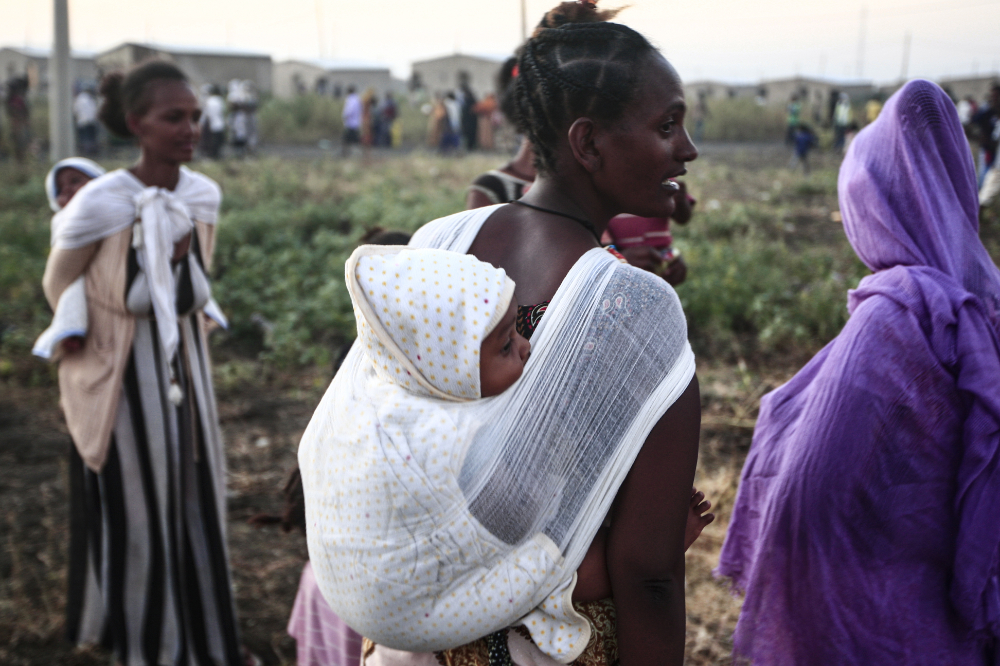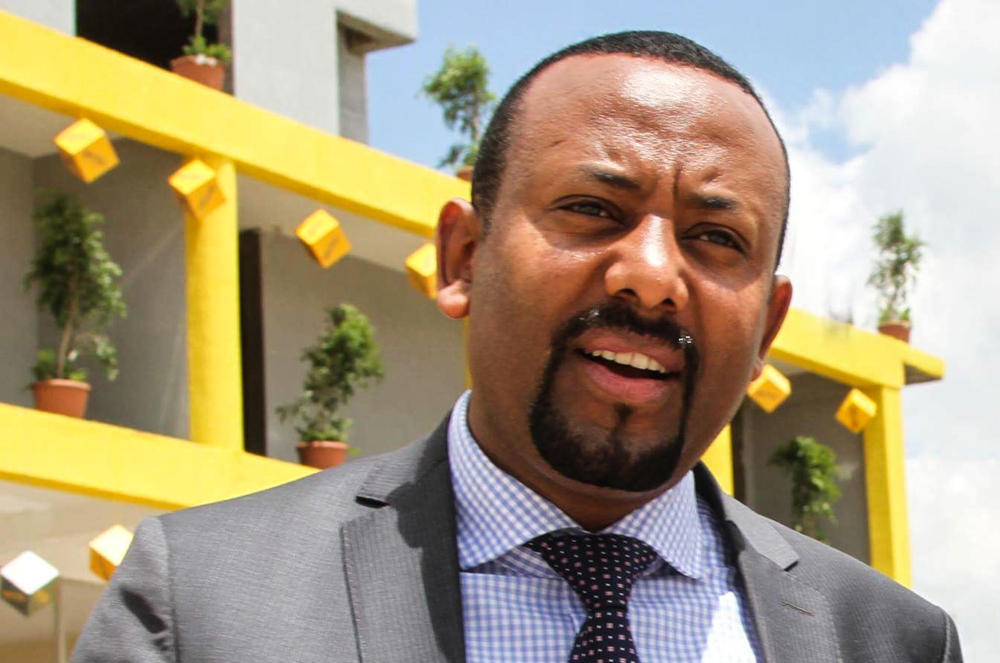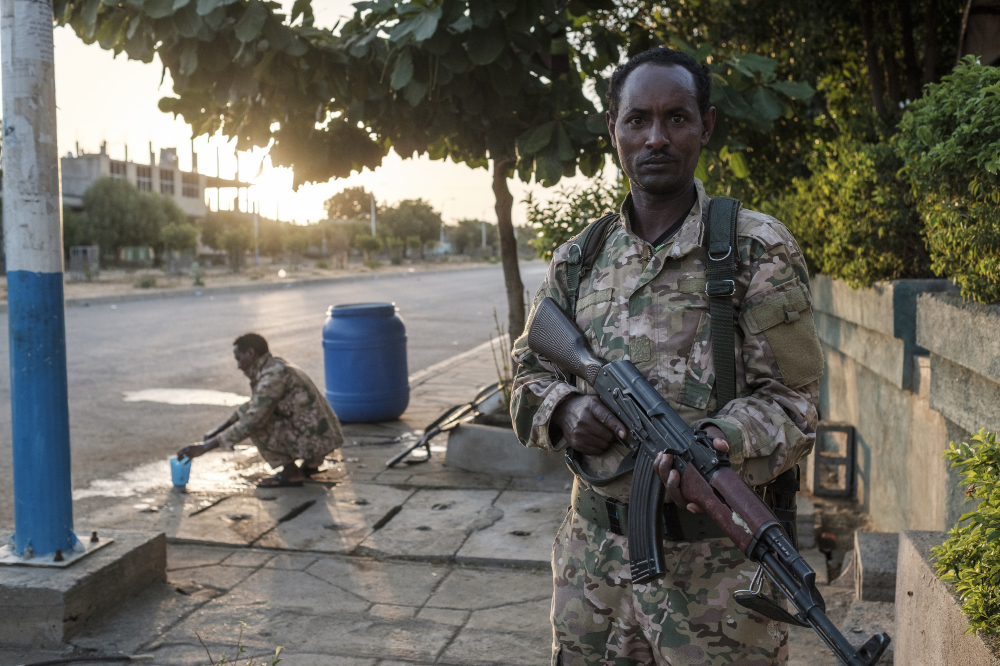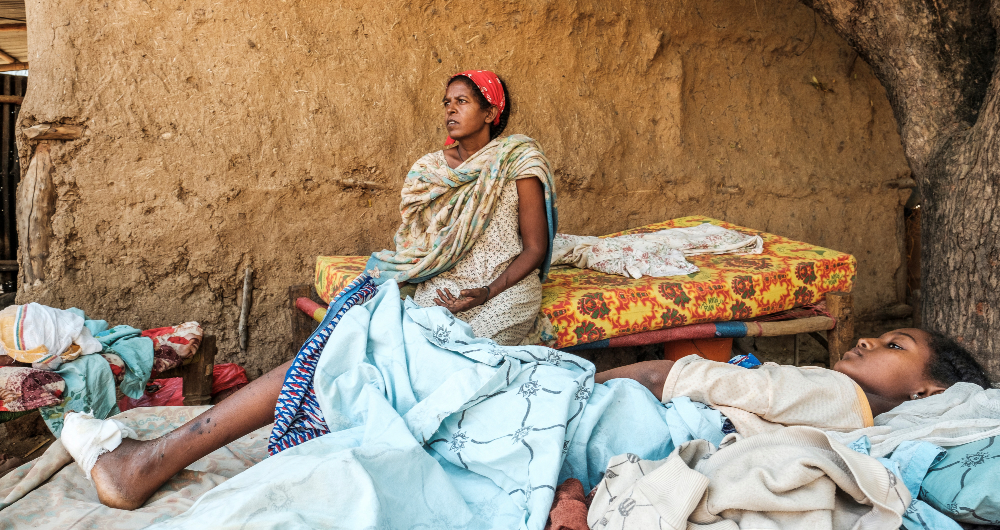DUBAI: During the early hours of Nov. 4, as the results of the US presidential election monopolized international conversation, fighting erupted in a country considered a strategic partner of Washington. Simmering tensions between the federal government of Ethiopian Prime Minister Abiy Ahmed and authorities in the country’s Tigray region reached a flashpoint, sowing the seeds of yet another humanitarian crisis in Africa.
While there are no official numbers on casualties, it is believed that hundreds of lives have already been lost on both sides, many of them civilians. The assault, officially termed “a law enforcement” operation, has included use of air force jets and ground troops against the Tigray People’s Liberation Front (TPLF), the ruling party of the eponymous region. Abiy said he had no choice but to order the offensive after federal defense forces in the Tigrayan capital, Mekelle, had their camp looted in an attack by the TPLF.
Regardless of which side is to blame for the escalation, the UN has warned that an additional 1.1 million people need aid, with at least 40,000 Ethiopians crossing into neighboring Sudan and the UN refugee agency preparing for up to 200,000 arrivals over the next six months. Meanwhile, journalists have become wary of reporting from the war zone after the detention of at least six Ethiopian media workers.

UN has warned that an additional 1.1 million people need aid. (AFP)
It is not just the media, though, that is being kept on a tight leash by the authorities. William Davison, senior Ethiopia analyst for the International Crisis Group, was recently expelled by the authorities. “There’s a climate of fear; people are afraid to speak,” said Matt Bryden, director of Sahan Research in Addis Ababa. “There is no communication with Tigray at the moment. There is no internet or telecommunication there now. The few people I managed to speak to a week ago seem to have gone dark.”
A report in the magazine Addis Fortune says transactions on all Tigrayan accounts have been frozen, which means no one can move money into or out of the region. “There is also no humanitarian access to the Tigray,” Bryden told Arab News. “The government has indicated that they will not allow any opening (into the region) until the current (military) operation is concluded.” On Nov. 23, Abiy gave Tigray 72 hours to surrender as government troops advanced on Mekelle. The TPLF, however, has vowed to keep fighting.
Ethiopia has returned to a state of war over unresolved issues that date back decades. Trouble among its historically and culturally diverse ethnic groups, which number approximately 80, has been a feature of national politics since 1996, when the current constitution came into force and cut the country into nine ethnically based semi-autonomous regions.

Abiy won the Nobel Peace Prize for his efforts to resolve a border conflict with Eritrea, which had flared up in 1998-2000 and killed thousands. (AFP)
As with all the previous conflicts, there is plenty of blame to go around this time too. “This is not Tigray against the rest of Ethiopia. This is Abiy trying to take control over all of Ethiopia and, at the moment, he is dealing with Tigray,” said Martin Plaut, fellow at the Institute of Commonwealth Studies and author of “Understanding Eritrea.”
“There has always been a power struggle between the Tigray and Amhara regions over who runs Ethiopia. In 1991 when the Tigrayans took control of the country, they came up with a system of ethnic federalism. Instead of people declaring their allegiance to Ethiopia, they owed their allegiance to their ethnic group. When Abiy come to power, he tried to pull power back to the center and re-establish the traditional Ethiopian imperial structure, which had been lost under the Tigrayan system.”
Plaut was referring to the ascent to power in April 2018 of Abiy, the son of a Muslim father and a Christian mother who was raised in a family of religious plurality. His reform agenda for Africa’s second largest nation and second largest economy quickly earned plaudits for its boldness from international organizations and political economists.
Many African and international observers saw Abiy as some kind of a savior for a country of 110 million people ravaged by decades of conflict and misrule. The 17-year civil war between government forces and Eritrean rebels triggered a famine that resulted in 1 million deaths. The scenes of skeletal malnourished children in camps set up by aid agencies shocked the world’s conscience and prompted 72 rock bands to stage on July 13, 1985, the famous Live Aid concert, which raised an estimated $125 million to feed starving Ethiopians.
 In 2019 Abiy won the Nobel Peace Prize for his efforts to resolve a border conflict with Eritrea, which had flared up in 1998-2000 and killed thousands. But opinions of his merit vary. “The opening of the political space has led to extreme violence in the country,” said an Addis Ababa-based political analyst who did not want to be identified. “All of these dormant disputes over territory have erupted all over Ethiopia. Every week now there is a massacre of civilians in some area of the country.”
In 2019 Abiy won the Nobel Peace Prize for his efforts to resolve a border conflict with Eritrea, which had flared up in 1998-2000 and killed thousands. But opinions of his merit vary. “The opening of the political space has led to extreme violence in the country,” said an Addis Ababa-based political analyst who did not want to be identified. “All of these dormant disputes over territory have erupted all over Ethiopia. Every week now there is a massacre of civilians in some area of the country.”
Through the decades, the Oromo, the Amhara and the Tigrayans have failed to agree on an amicable division of the spoils. Amhara elites traditionally dominated Ethiopia, but they were overtaken by the Tigrayans between 1991 and 2018 through the Ethiopian People’s Revolutionary Democratic Front (EPRDF), an ethnic federalist political coalition.
“Many Ethiopians, in particular dissidents, see Abiy as a reincarnation of (former dictator) Mengistu (Haile Mariam) because he is seen as harboring plans to govern Ethiopia in a centralized manner,” said the Ethiopian political analyst. “This perceived stance was used as a rallying cry in the several bouts of violence that have erupted in Oromia, where Abiy is from. You have his former allies who have turned against him for this reason too.”

Through the decades, the Oromo, the Amhara and the Tigrayans have failed to agree on an amicable division of the spoils. (AFP)
Observers say in order to achieve his aim of “stabilizing” Ethiopia, Abiy has sidelined and antagonized many regional elites and interest groups. Bryden puts it this way: “You are talking about a country as old as Ethiopia, with over 100 million inhabitants, many of whom are rural, barely literate, if literate, living at subsistence level. When you are trying to introduce these kinds of changes, you are creating opportunities for other elites to challenge your vision and your authority. Yet people believed in Abiy’s vision, and with the EPRDF gone, that life could only get better.”
By many accounts, the opposite has turned out to be true. Eritrea has said it was targeted by the TPLF on Nov. 13 and 14 ostensibly for allowing the Ethiopian military use of an Eritrean airport to attack Tigray. The reported clashes have renewed long-simmering tensions between Eritrea and the TPLF as well as raised the specter of a multi-sided conflict that could destabilize the wider region.

While there are no official numbers on casualties, it is believed that hundreds of lives have already been lost on both sides, many of them civilians. (AFP)
A parallel feud already exists between Egypt, Sudan and Ethiopia over the $5 billion Grand Ethiopian Renaissance Dam (GERD), which sits on the Blue Nile near the border with Sudan. Ethiopia hopes the 6,000-megawatt dam will turn it into Africa’s top hydropower supplier. Egypt and Sudan, however, fear the project will substantially reduce their water share and affect development prospects.
According to analysts and rights group, the only way out of the current conflict is a national dialogue. Ethiopia’s regional leaders “could come up with a plan that satisfies many of the current demands that go back five decades to Mengistu’s era,” said the Ethiopian political analyst. “Unless we are able to have a national dialogue, the country will remain locked in this cycle of violence.”
As of Wednesday, however, the idea of national dialogue sounded far-fetched. Ethiopia has opposed what it calls "unwelcome and unlawful acts of interference" in its affairs, referring evidently to the military operation. According to a statement by Abiy, “the international community should stand by until the government of Ethiopia submits its requests for assistance.”
Twitter: @rebeccaaproctor
"conflict" - Google News
November 26, 2020 at 01:44AM
https://ift.tt/2HzzJbA
Can Ethiopia break the vicious cycle of conflict? - Arab News
"conflict" - Google News
https://ift.tt/3bZ36xX
https://ift.tt/3aYn0I8
Bagikan Berita Ini














0 Response to "Can Ethiopia break the vicious cycle of conflict? - Arab News"
Post a Comment